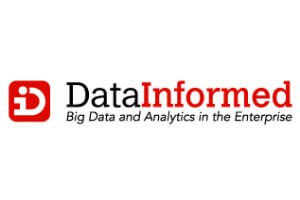Data we have; time, not as much. How can teams use – sales enablement technologies based on artificial intelligence (AI) to maximize their use of time and become sales heroes?
Time, speed and data are the big three of sales success. Of these, time is finite; we can have a virtually limitless amount of data and tremendous processing speeds, but each sales team has the same amount of time. When we maximize time, we maximize profitability and productivity.
If companies want to gain a competitive edge, how sales teams use their time and data is crucial. There’s a growing trend toward using AI and data analytics as sales enablers. How does this work, and how is it helping sales teams become more productive?
Manage Your Data, and You’ll Manage Your Time
I strongly feel these two things about data, as shared in my article in MarTech Advisor
As humans, we easily get distracted by facts that are interesting but not relevant…. There’s a fine line between too much data and too little. Stray too far in either direction and the entire marketing department will be impaired in some way.… [We] need to make sure that the most significant information is reaching those who need it.
Sales reps spend a lot of time on data: searching through leads, prioritizing contacts, researching company needs and finding the most relevant content for their clients. This task becomes much more complicated and infinitely more time-consuming when they have to wade through unrelated information. The first step in boosting productivity is reducing this lost time by giving the sales team the data it needs — and only the data it needs.
Artificial Intelligence as Sales Assistant
Another time drain for sales reps is completing administrative tasks such as updating the customer relationship management (CRM) system, entering meeting notes and scheduling calls. If reps could hand these off to an assistant, they would have an enormous amount of time to concentrate on sales; unfortunately, few organizations have the budget to assign a personal assistant to each rep.
This doesn’t mean that reps will evermore be stuck doing time-stealing work. Recently, AI-enhanced sales tools (such as Absolutdata’s SalesAI tool and others) have automated these processes, such as automatically capturing and updating data, scheduling calls and follow-ups and performing other routine tasks. These tools can be used to create a strategy for each rep’s workweek, prioritizing each rep’s contacts and helping the reps come up with a game plan for each call or meeting.
Training Sales Teams with Technology
We can take sales enablement technology one step further, from assistant to trainer. Until now, we’ve focused on how AI tools can save time; now let’s see how they can be used to improve performance.
Every rep has had the experience of a great call that somehow never quite got to the closing stage. And every team has its sales stars — the super-successful individuals who can sell just about anything. AI can help teams avoid the one and emulate the other. Here’s how:
- Reps can use AI-driven tools to help personalize their interactions with each client. These tools put details such as the client’s name and title, as well as company type, size, industry and competitor information, at the rep’s fingertips.
- Sales enablement tools also provide guidance on what to sell, how to pitch it and why a specific client would be interested. For example, the contact might like Product X because it works with Product Z, which the contact already has. The sales AI tool offers a list of recommended options for each contact; if one offer isn’t appealing, the rep has other options available.
- AI can also help reps when it’s time to close the deal. Details from previous successful conversations are analyzed by the sales enablement system, which uses conversation analytics to identify the most successful approaches. This helps rep know how much to talk versus how much to listen, when to discuss product features and price and what words to use to move the conversation along.
- A similar system can also be used to help reps increase their effectiveness. A good AI tool can analyze the actions of the most successful reps, isolate what they do differently than others and help others implement these factors in their own sales approach.
While AI won’t eliminate the need for human-to-human training, it can certainly help reps adjust their performance and boost their productivity. Sales coaches and team managers can also use the data from AI sales tools to inform their own training activities.
Moving Forward Using AI
In short, an AI-based sales enablement tool is a multifunctional asset to any sales team. It takes over routine work, freeing up reps’ time. It simplifies data management, ensuring that reps don’t have to search through a lot of extraneous information to get what they need. And it can help teams reach their full potential by guiding their sales conversations and training them in effective selling techniques.
Sales teams have data. What they need is to make the most of their time. AI is already giving organizations that use it an edge over the competition, and this trend will continue. To learn more, check out this podcast or contact Absolutdata, an industry leader in AI technology and sales analytics.
Anil Kaul is Cofounder and CEO of Absolutdata. He has more than 22 years of experience in advanced analytics, market research and management consulting. He is very passionate about analytics and leveraging technology to improve business decision making. Prior to founding Absolutdata, Anil worked at McKinsey & Co. and Personify. He is also on the board of Edutopia, an innovative start-up in the language learning space.
An in-demand writer and speaker, Anil has published articles in McKinsey Quarterly, Marketing Science, the Journal of Marketing Research and the International Journal of Research. He was recently listed among the 10 Most Influential Analytics Leaders in India by Analytics Magazine Indiaand has been quoted as a game changer in Research World. Anil has spoken at many industry conferences and top business schools, including Dartmouth, Berkeley, Cornell, Yale, Columbia and New York University. Anil holds a Ph.D. and a Master of Marketing degree, both from Cornell University.
























